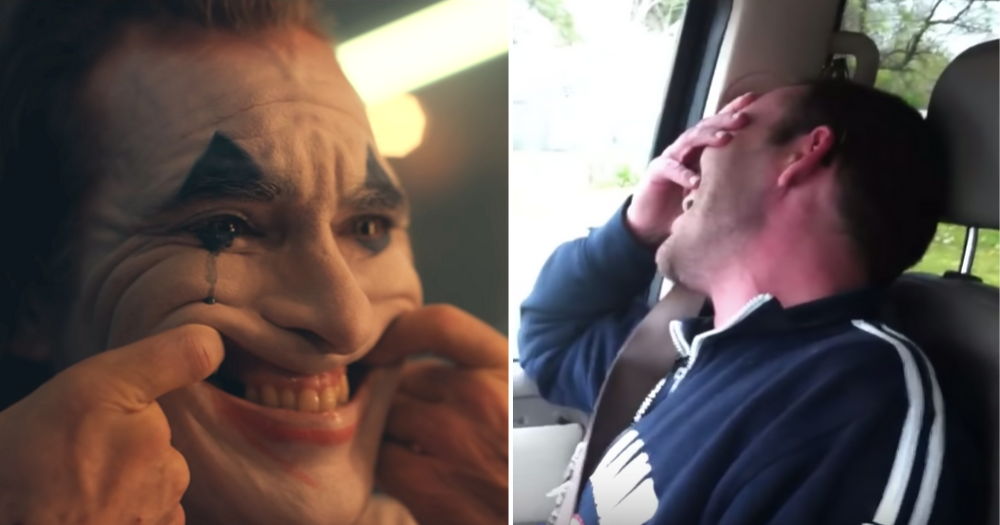*Very minor spoilers below*
You might have caught Joker in cinemas recently.
The movie depicts how Arthur Fleck, a struggling comedian who is bullied and ostracised, begins his slow descent into insanity and the eventual transformation into the villainous Joker.
In the movie, Fleck is known to suffer from an unnamed medical condition where he starts laughing uncontrollably at inappropriate times.
To explain his condition, he carries around a laminated placard to inform those around him about why he is laughing.
Joker's maniacal laughter has become key to the character's identity, even becoming a trademark of sorts, and further complements his clown persona.
Hearing it might make you think that such a trait belongs only to a deranged, fictional character.
However, you might be surprised to find out that there are people in real life who suffer from the same affliction that Joker does.
Uncontrollable laughter and crying
Although the movie never names the specific conditions Joker is suffering from, the character's fits of laughter are actually based on a very real condition known as the Pseudobulbar Affect (PBA).
According to Mayo Clinic, PBA is a condition "characterised by episodes of sudden uncontrollable and inappropriate laughing or crying".
Crying is usually more common than laughing.
These outbursts are not controlled by or connected to the person's current emotional state, and can occur at any time, which might lead to certain inappropriate situations.
PBA typically affects people with certain neurological conditions or injuries, such as stroke, Alzheimer's, Parkinson's, or a traumatic brain injury.
Those who suffer from PBA can take medication to reduce the frequency and severity of PBA episodes.
Inspiration of PBA came from director
In an interview with Indie Wire, Joaquin Phoenix, the actor who played the Joker, revealed that to practise the character's unique, deranged laughter, he had done his research.
Phoenix reportedly watched videos of people affected by pathological laughter to prepare for the movie.

The idea of Joker suffering from a condition similar to PBA was also reportedly conceived by the director, Todd Phillips.
Phoenix, however, disagreed with the characterisation, saying he questioned "if that's really what [Joker] has", and stated that "perhaps [it was the Joker's] real nature emerging that other people were trying to suppress."
"You’re talking about somebody who doesn’t know the difference between right and wrong. Someone like that has a level of emotional disturbance that could trigger somebody."
Additionally, the movie oversimplifies PBA, considering the Joker only ever bursts into fits of laughter even though PBA-sufferers cry more than they laugh.
And while many can agree the Joker undoubtedly committed plenty of crimes, perhaps shedding light on the psychological trauma and mental conditions behind the character could invoke some sympathy for real victims of such conditions.
Phoenix said:
"It’s hard not to have sympathy for somebody who experienced that level of childhood trauma: An overstimulated medulla looks for and perceives danger everywhere. For someone in that state, does it mean his actions make sense or are justified? Obviously not."
Top photo from Warner Bros. Pictures / YouTube and sackman11 / YouTube
Content that keeps Mothership.sg going
??
Do you remember the last time you used a passbook?
??
What's it like to be a 22-year-old with depression and anxiety?
??️
Limited 40% off vouchers for fine dining here!!! Don’t say we bojio.
??
Quick atas tips to impress your date.
If you like what you read, follow us on Facebook, Instagram, Twitter and Telegram to get the latest updates.
